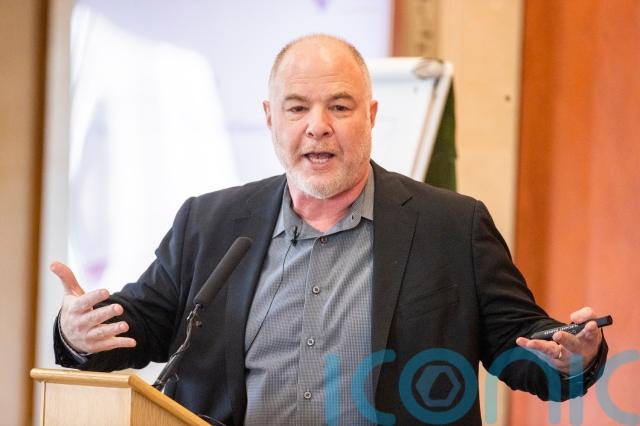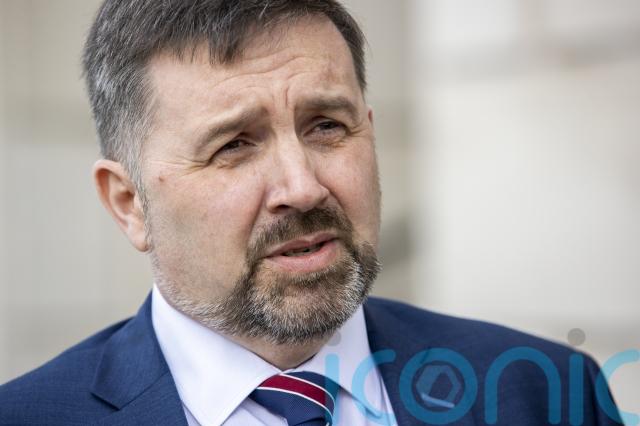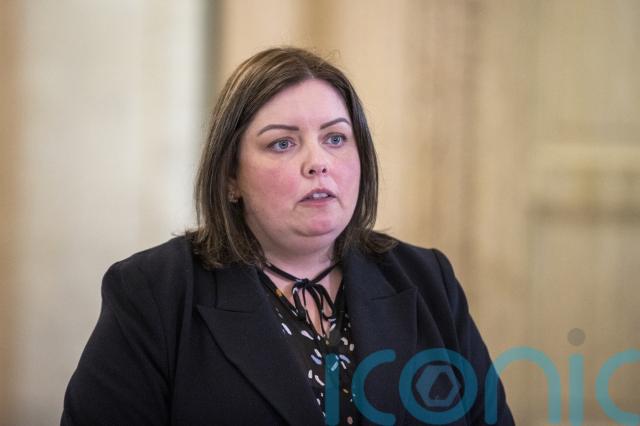
Simple interventions rather than superheroes are needed to tackle violence against women, a conference has heard.
Not laughing at a sexist or otherwise offensive joke or telling a friend to “cop on” are among the actions people can take in what is known as the Bystander Approach, an audience at Stormont was told.
Professor Louise Crowley said it does not have to be about donning a cape and physically intervening, as she addressed a gathering of approximately 300 people both virtually and in person at the Long Gallery in Stormont on Tuesday.

The law professor, whose successful Bystander Approach was first implemented at University College Cork and is now being rolled out across other higher education institutions and piloted in schools across Ireland, said there are various steps people can take.
She told those gathered: “I know from hearing from our students and our staff who say ‘bystander intervention, gosh, I thought when I started I was basically learning how to fistfight. I was worried I had to put on a cape and dive in and sort out situations’.
“In fact, that’s very rarely the situation and what we want to do is understand the range of ways in which an intervention can be made – interruption, removal, distraction, don’t laugh at a joke, tell your friend to cop on.”
Her sentiment was echoed by Dr Jackson Katz, the keynote speaker at the event – the largest ever Bystander Approach conference in Northern Ireland – organised by the Executive Office.
He said: “This is not a superhero model, the bystander approach.”
He said his main message is that men “especially those in positions of societal and cultural influence, have a much more important role to play in preventing men’s violence against women than we have shown to date.”
He said that while women’s leadership “in Northern Ireland and across the world, has been incredible and transformative”, there needs to be more action from men.
Addressing the “not all men” school of thought voiced by some, Prof Crowley said men need to realise that although they are not all the problem they can all help to address the issue.
She said: “It’s about awakening, and it is about awakening people’s recognition that although you may not be the source of the problem, you are part of the source of the solution.
“Not all men are perpetrators of violence or sexual harassment, but all men can do something about it, and there is nothing more powerful than a man speaking to somebody in his peer group and calling out behaviour.”

Dr Katz, co-founder of Mentors in Violence Prevention (MVP), also raised the issue of pornography, which he said is “normalising sexual violence”.
He said it is an “unbelievably influential part of the culture and it’s really, really abusive and misogynist”.
He added: “Anybody who thinks this is about sexual freedom hasn’t been paying attention. This is not about sexual expression. It’s not about sexual freedom. It’s about normalising misogyny and violent abuse.”
He also said the normalisation of men strangling women in porn, which might be passed off as “rough sex” is “so pathetic” and should spark outrage.
He said: “The normalisation of men strangling women in pornography is why it’s happening more and more in quote unquote real life. We need to do better.”

While the Stormont Assembly remains unable to function due to a political disagreement over the Northern Ireland Protocol, work is ongoing to inform a strategy to tackle violence against women and girls.
It is aimed to have a draft framework for an Ending Violence Against Women and Girls Strategy by the end of 2022.
Addressing the audience virtually, Health Minister Robin Swann said he is committed, along with ministerial colleagues, to “challenge and address the societal attitudes and behaviours that contribute towards violence and abuse in our society”, adding that is is “essential that we tackle the root causes”.
Communities Minister Deirdre Hargey, who was at the event, said: the strategy will “work alongside and be complementary to the Gender Equality Strategy, which my department is developing on behalf of the Executive.
“The two strategies together will aim to provide a robust basis for addressing misogyny and tackling structural violence against women and girls”.
Subscribe or register today to discover more from DonegalLive.ie
Buy the e-paper of the Donegal Democrat, Donegal People's Press, Donegal Post and Inish Times here for instant access to Donegal's premier news titles.
Keep up with the latest news from Donegal with our daily newsletter featuring the most important stories of the day delivered to your inbox every evening at 5pm.